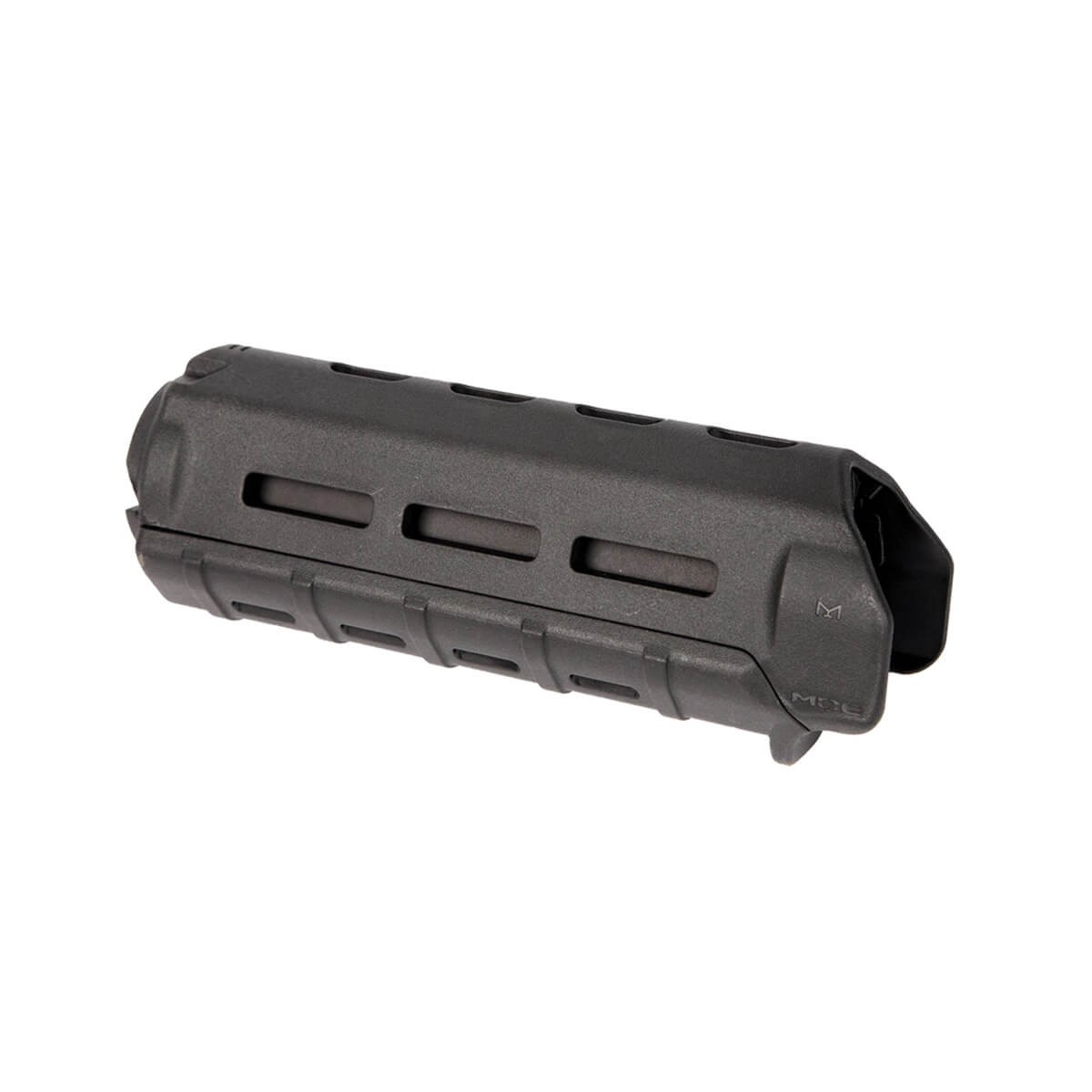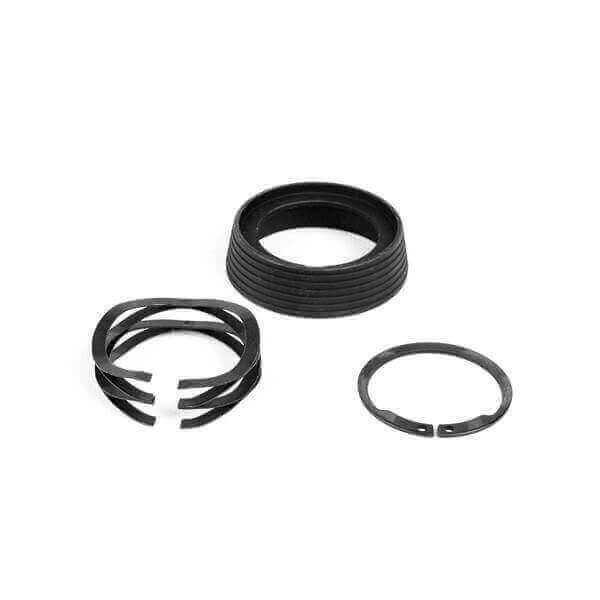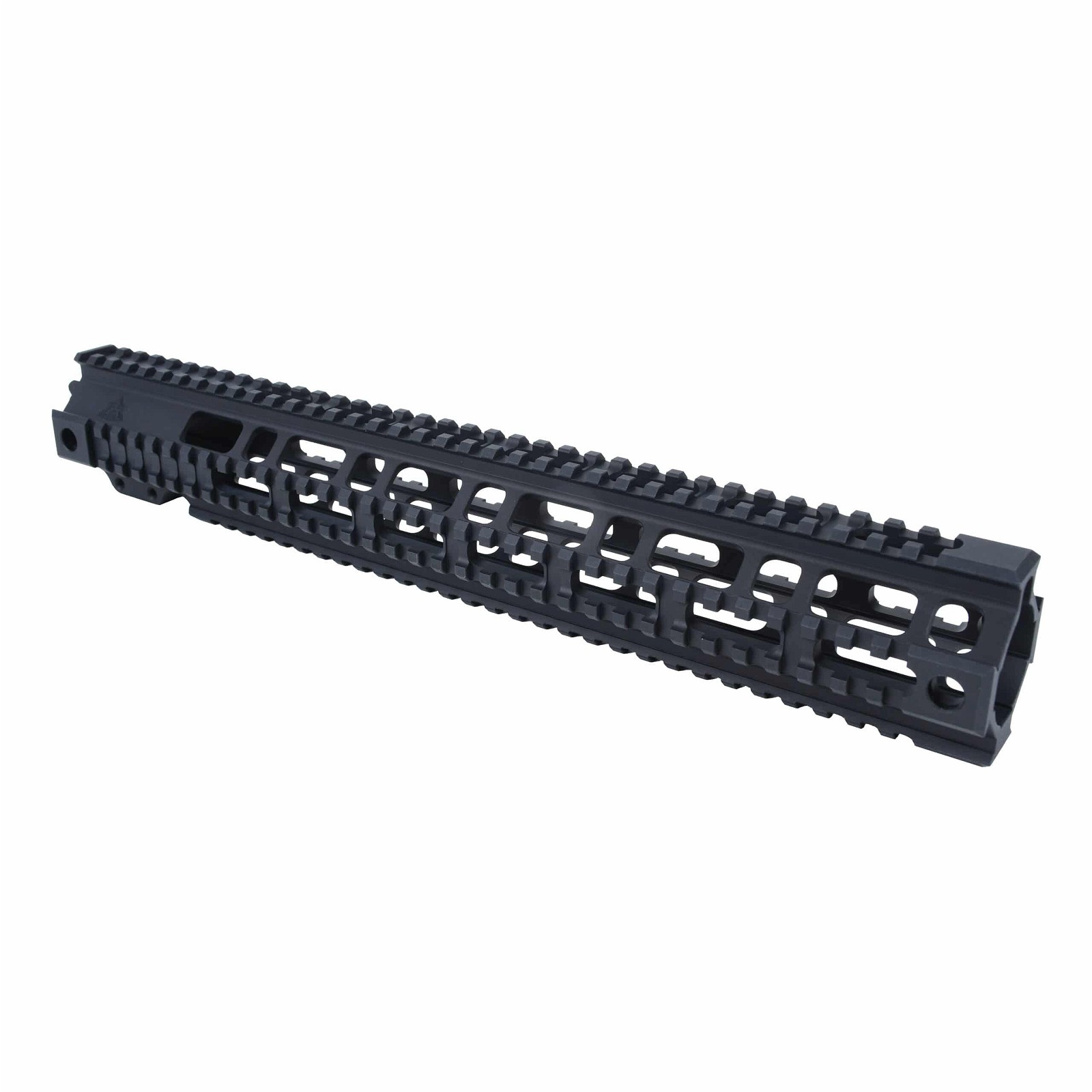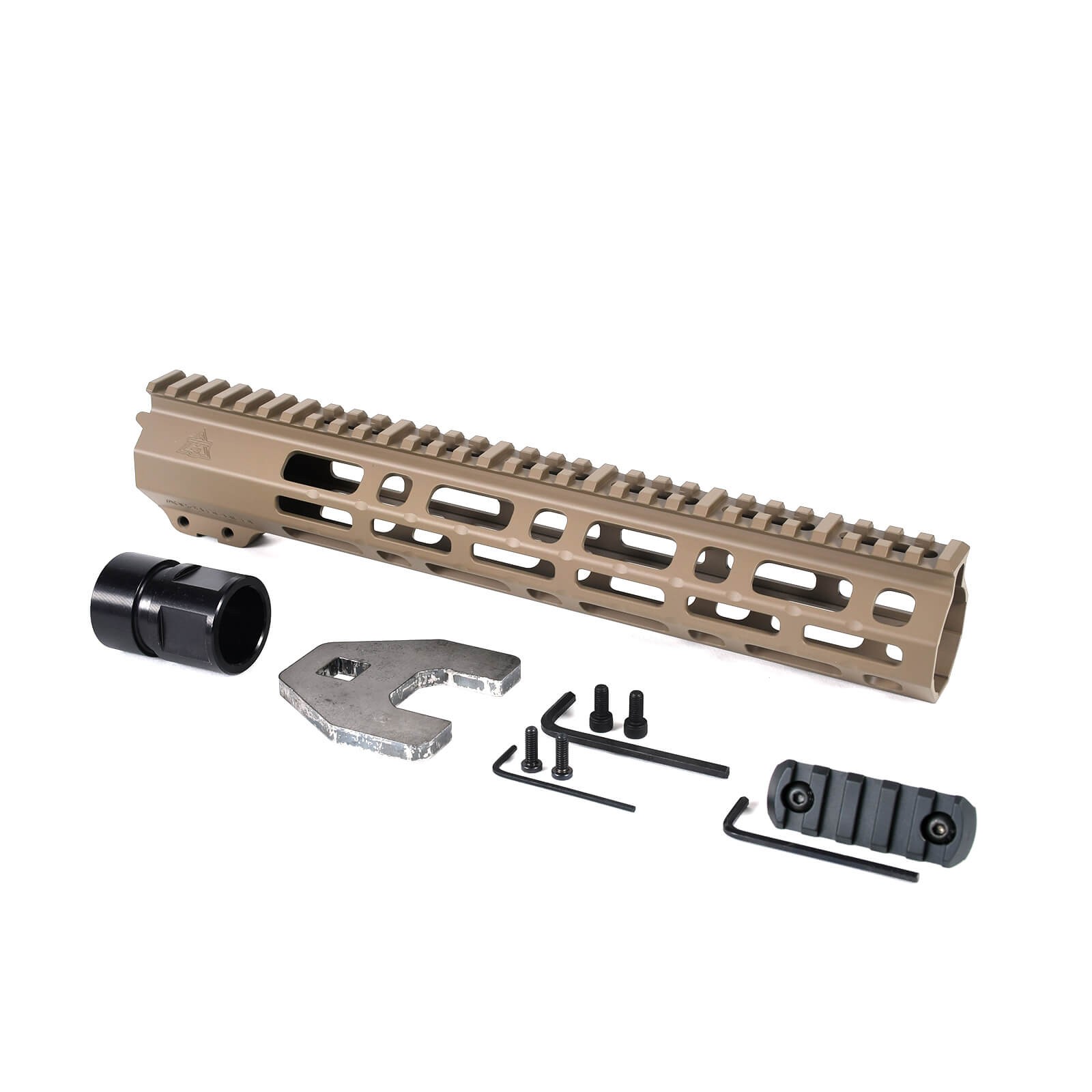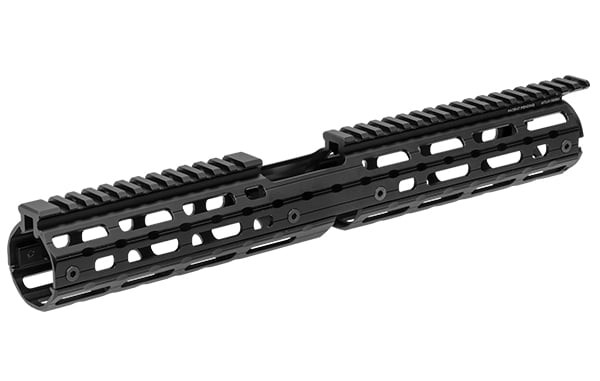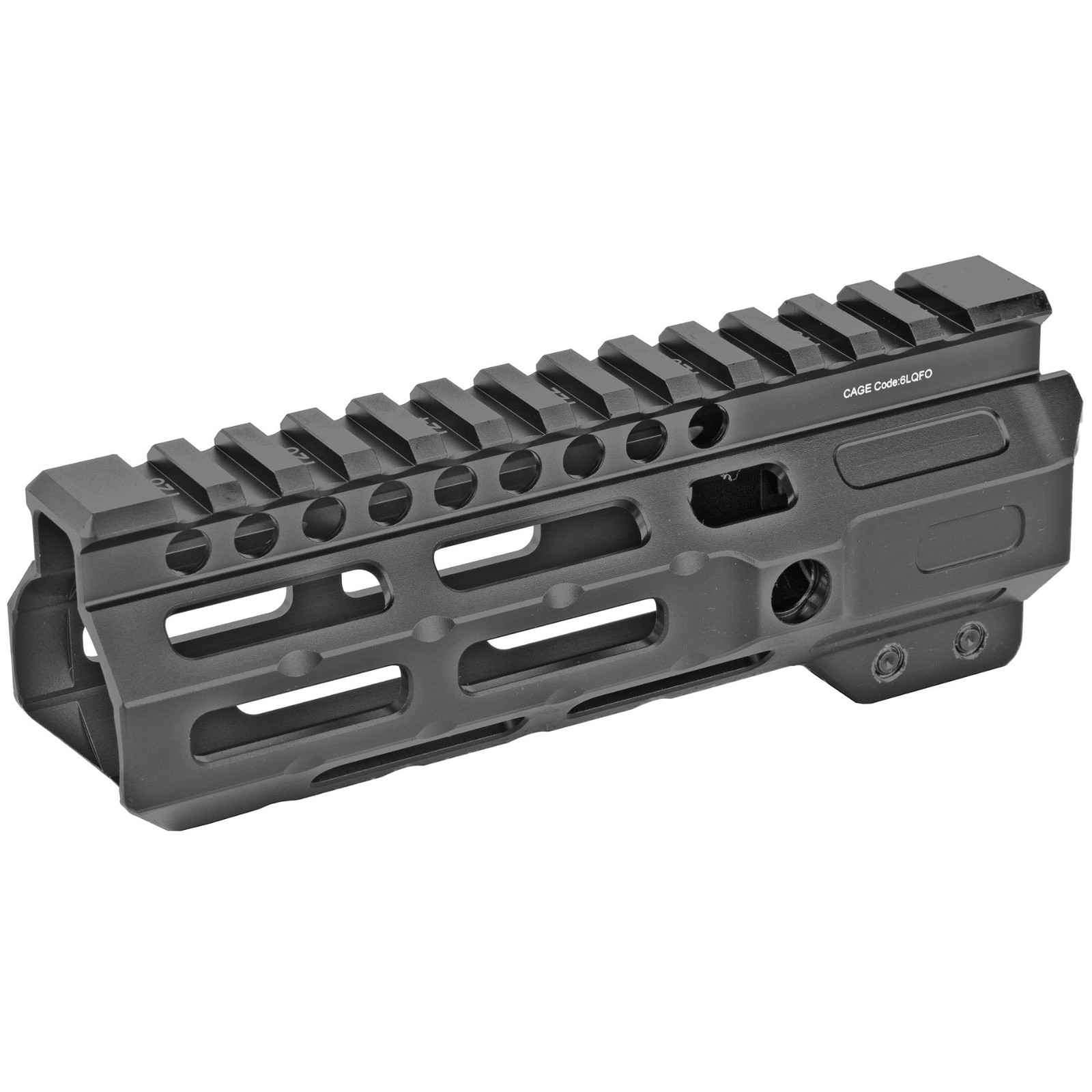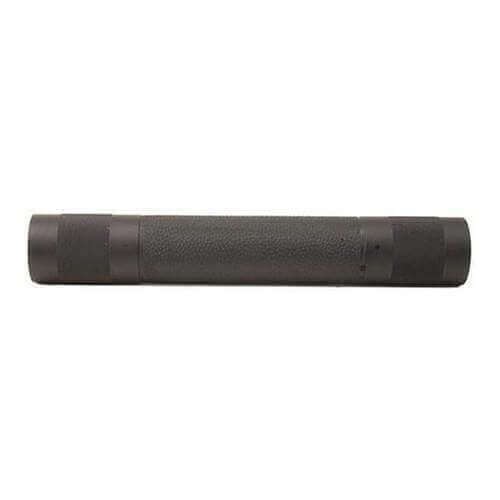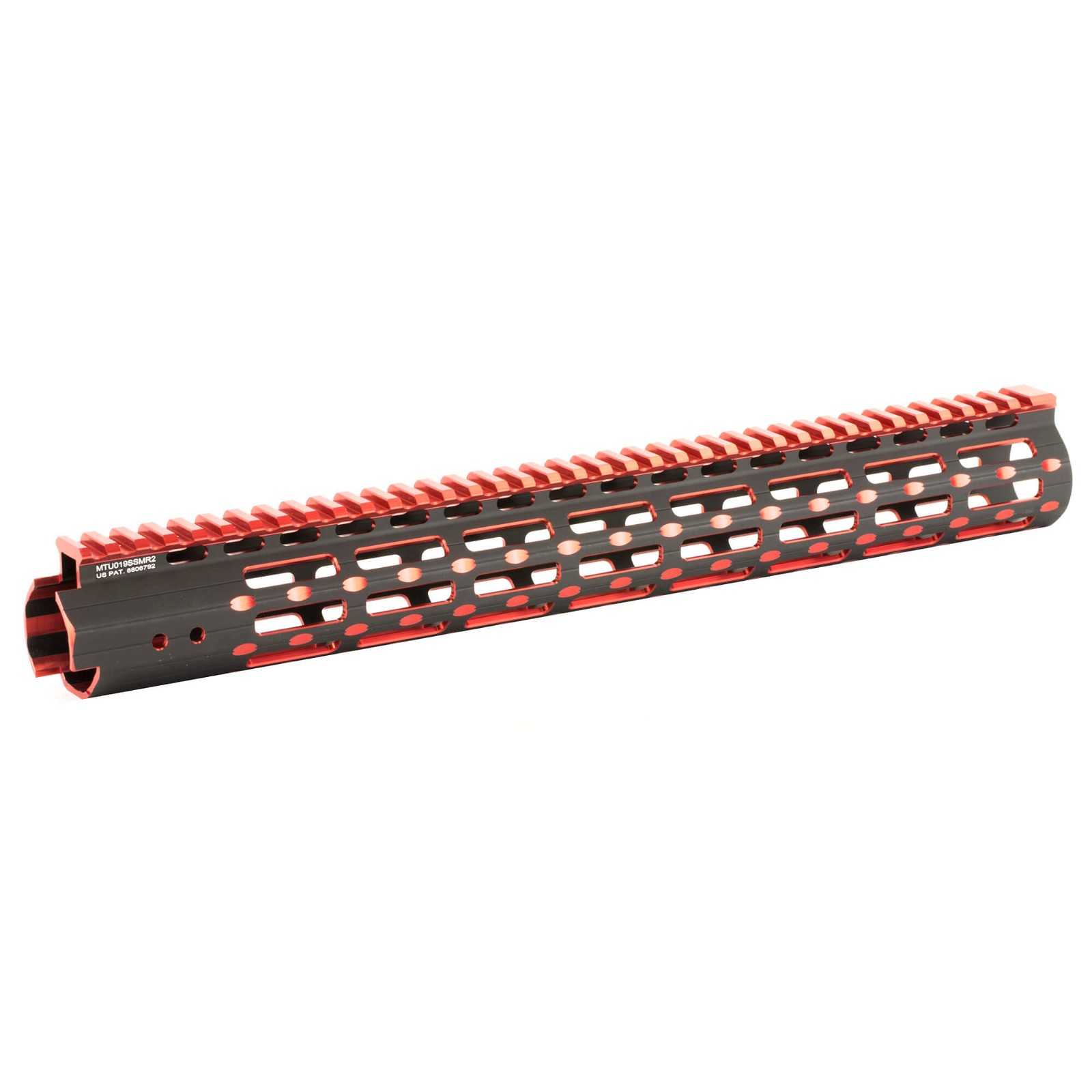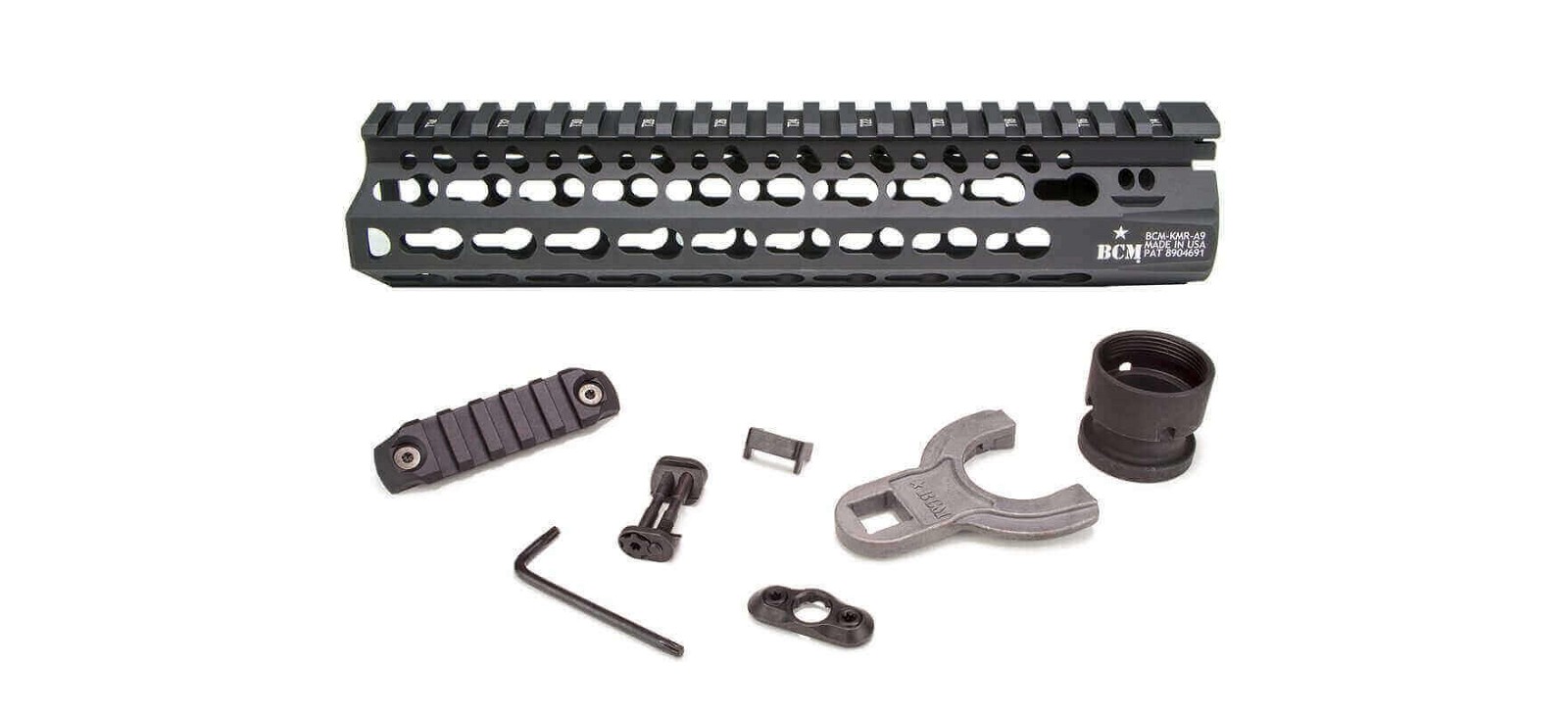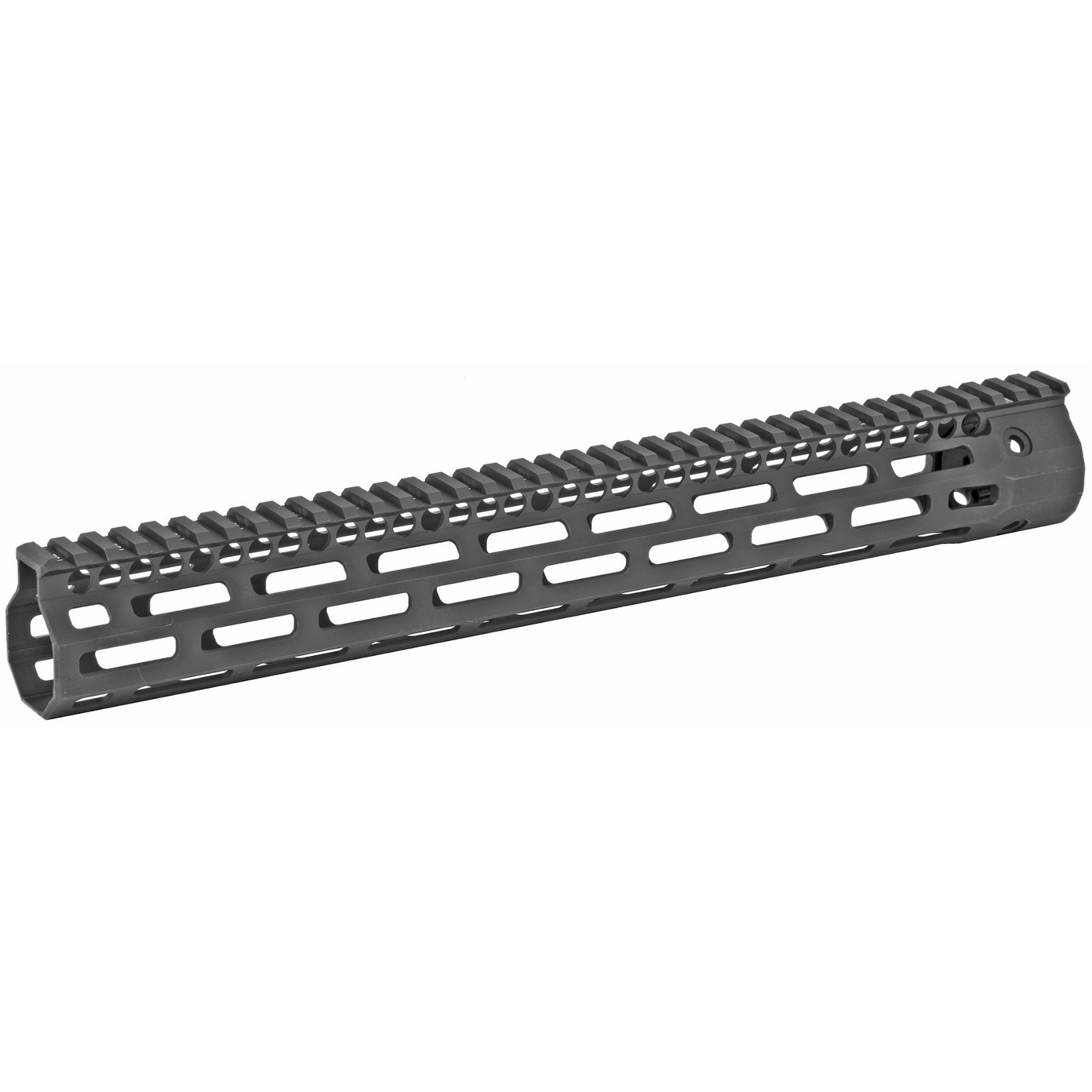The humble handguard is easy enough to understand. This piece of aluminum or plastic is a guard. For your hand. Simple enough, right?
Hardly. The handguard keeps you from coming in contact with a smoking hot barrel, true enough. But the best handguards provide a rock-solid platform for establishing a firm shooting grip and an anchor point for a plethora of accessories, too.
How a handguard feels is integral to how you relate to the rifle (or shotgun, or pistol even). But the handguard also defines the aesthetic of the gun. While the way a gun looks isn’t as important as how a gun functions (at least for most of us), it isn’t something we often disregard completely.
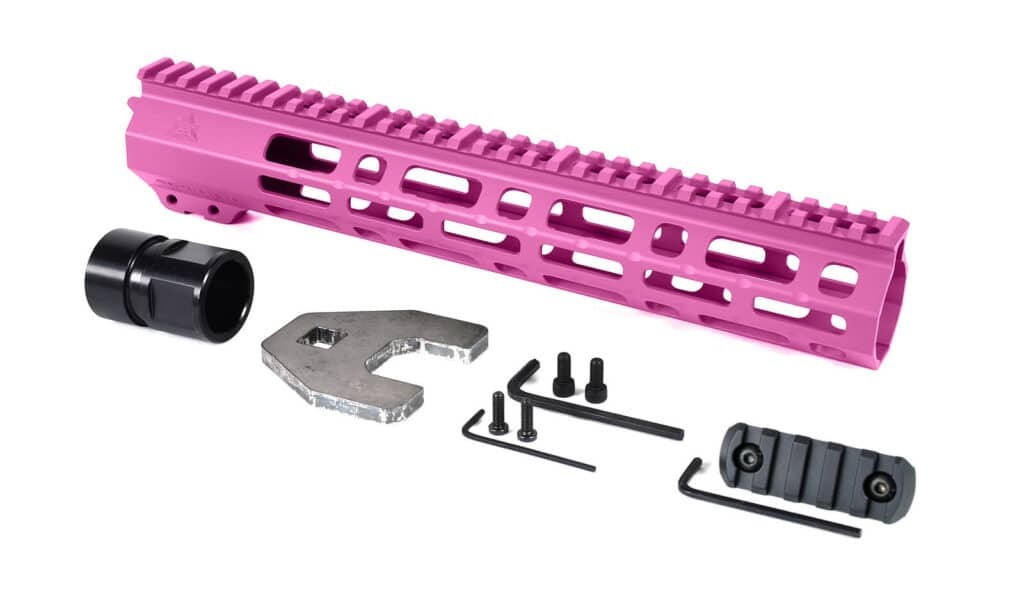
Aluminum handguards
We’ll start with one of the most utilitarian materials out there: aluminum. Aluminum is light and strong. But not all aluminum is created equal.
Without getting into a detailed analysis of alloy compositions, you can still easily judge aluminum by one of two manufacturing methods. Some aluminum is poured or extruded into forms. This is then cleaned up, out of the mold, and the resulting casting has a loose crystalline structure that is not known for its strength.
A billet of aluminum is different. Aluminum is poured into a block and is then hammered or compressed to pack the crystals in. This billet is then milled into the final shape desired.
With a forend, milling often means there’s a ton of waste. The end results, though, are strong and durable (which means they can be cut thinner).
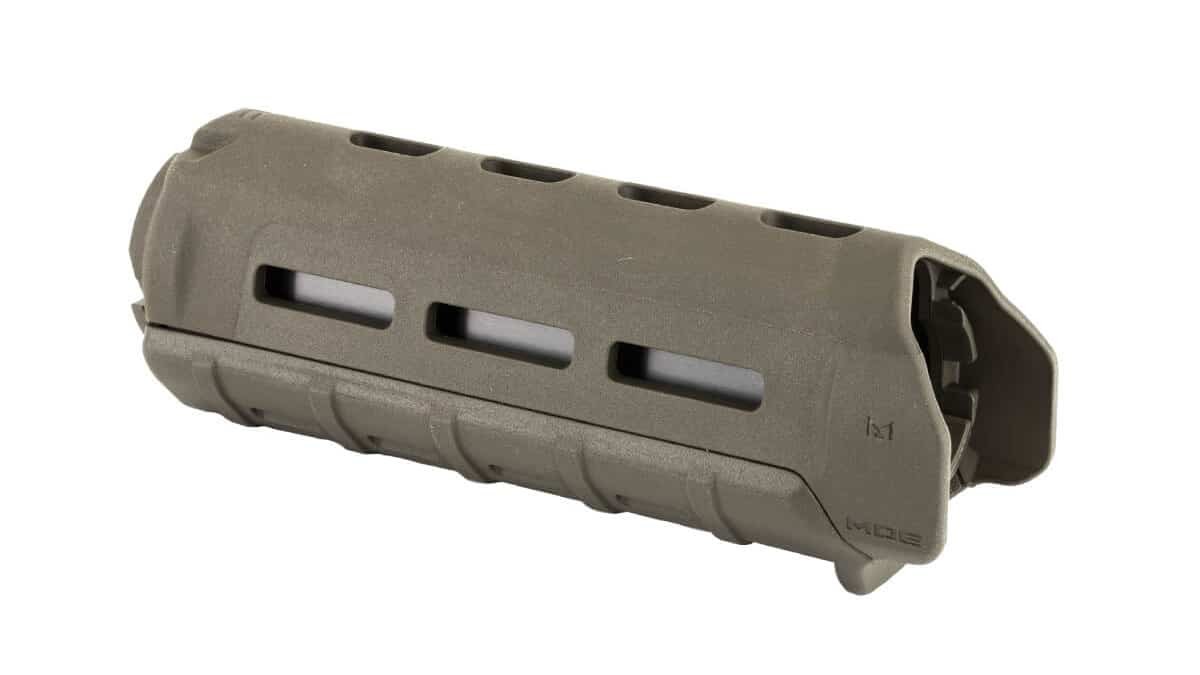
Why is aluminum better than polymer?
Polymer, or what most of us simply call plastic, is a good choice for weight and ergonomics, but they’re usually not as rigid as an aluminum handguard. They flex more.
Plastics and nylons and blends, though, are notorious for getting a bit melty when exposed to extreme heat. And shooting a rifle multiple times in a row, or–better yet–full auto will have an adverse effect on these types of guards. And your hands.
The way most combat this is by building steel heat shields into the handguard. This tends to isolate a cushion of air that heats up between the shield and barrel and keeps things cooler, and it works well enough.
The last benefit may appeal to those who are looking for something other than black. AT3 now has a search function that allows you to see all of the accessories by color. Check it out.
Mounts for AR-15s
Handguards have to connect to the gun, and there are some unique systems for accomplishing this. Some clamshell types have been in use for decades and simply snap in place in a delta ring. This type most often connects to the old-school front sight post/gas block, too.
Other handguards use the barrel nut and an adapter that functions as a spacer. This type is often a free-float design, which means it is anchored only at the receiver end. Thus, the connection has to be seriously robust. That one joint has to support all of the weight and force you might add to the forend during normal shooting.
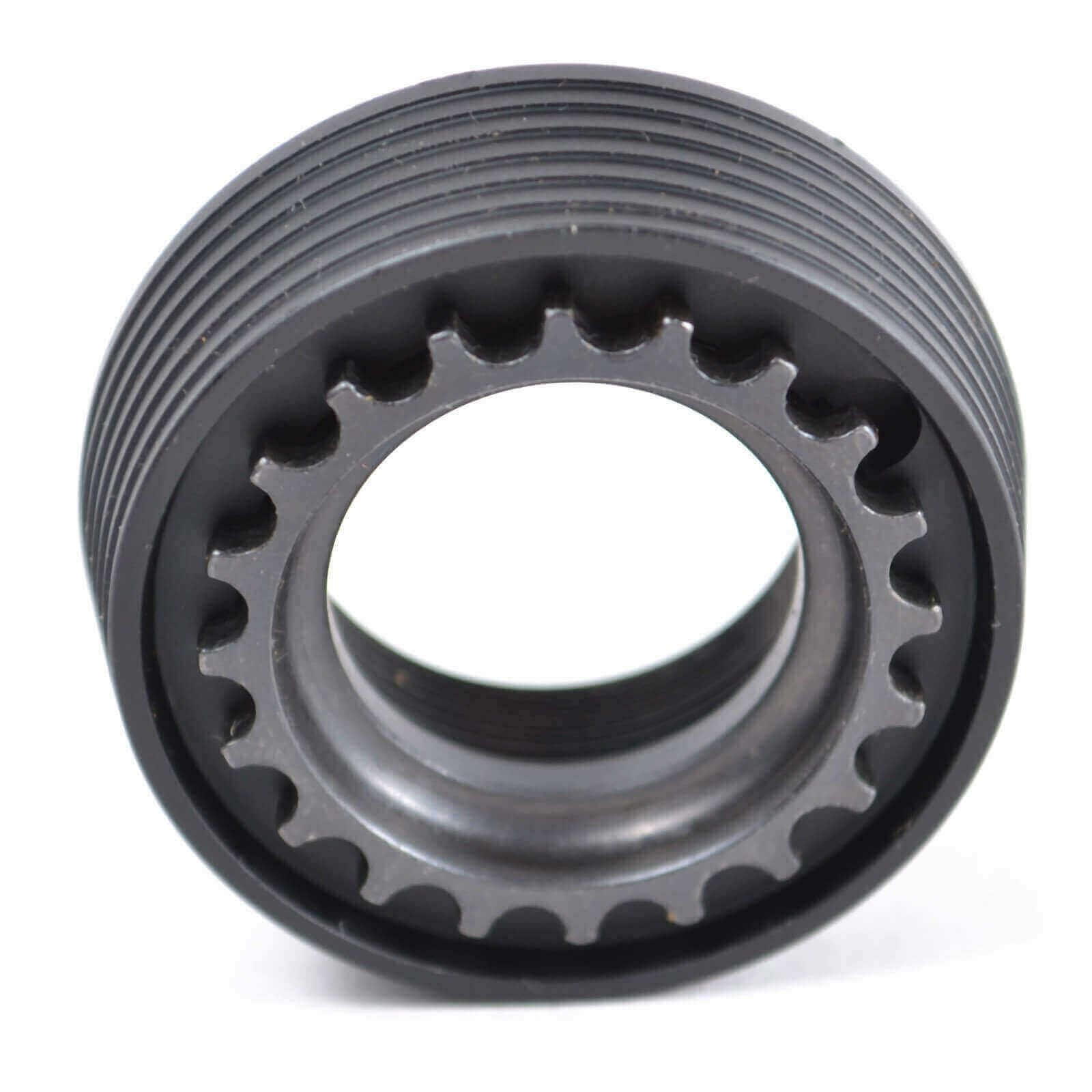
Some have a proprietary nut that connects to the upper. This nut is tapped and threaded to accept screws that hold the forend in place. These are easy enough to index and stay aligned.
Other mounts will have tabs that align the forend to the 12 basic positions of a clock face. 12 is the top, 6 is the bottom, etc. Most of these will have a pair of bolts on the bottom of the handguard near where it attaches to the receiver that, when tightened, compress the metal in a vice-like grip.
In any case, a new handguard (apart from anything labeled “drop-in” for a carbine) will likely mean some basic modifications to the AR-15. If you are transitioning from a traditional front sight post that would obstruct the handguard, you’ll have to switch to a new gas block.
Handguards < $100
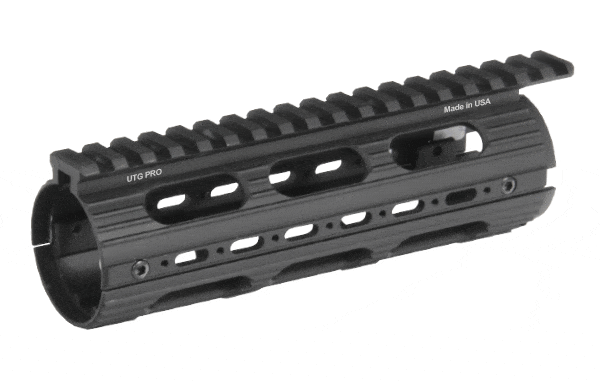
The UTG 7″ Drop-in handguard is an easy upgrade. Drop-in means you will only have to compress the delta ring and uncouple the plastic handguard, and then replace it with this one. While short, it this adds some usable rail to the top-side.
Additional rail sections can bolt onto the sides and bottom, but the tube remains thinner than a traditional quad-rail.
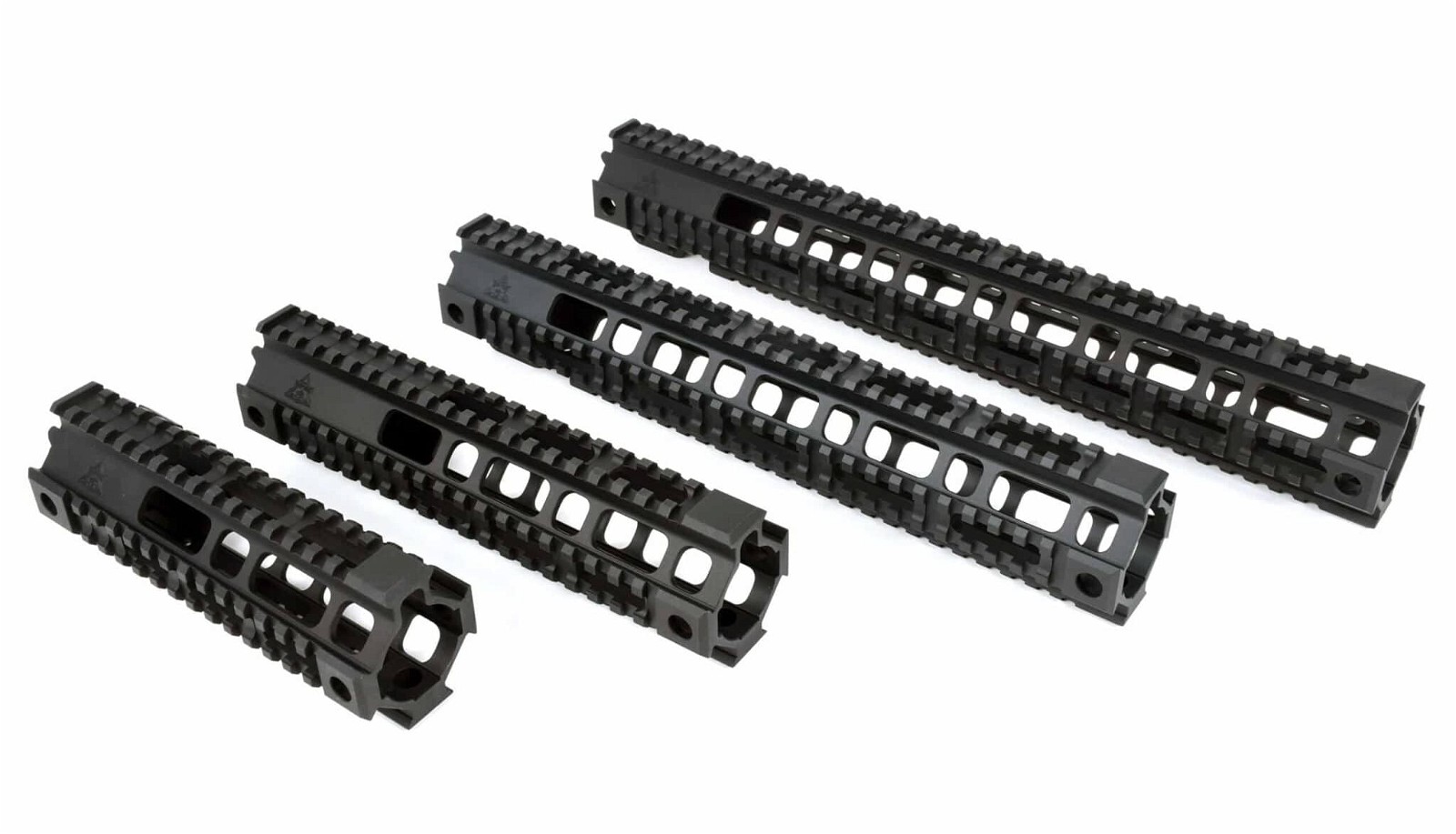
The AT3 Pro Quad Rails come in four sizes. They’re designed for adaptability. With rail on four sides, these offer a solid mounting platform for accessories on all sides.
They come in 7″, 9″, 12.5″, and 15″ versions. Mounting is easy, as the handguard uses screws to clamp around the barrel nut, and has anti-rotation tabs and anti-slip screws.
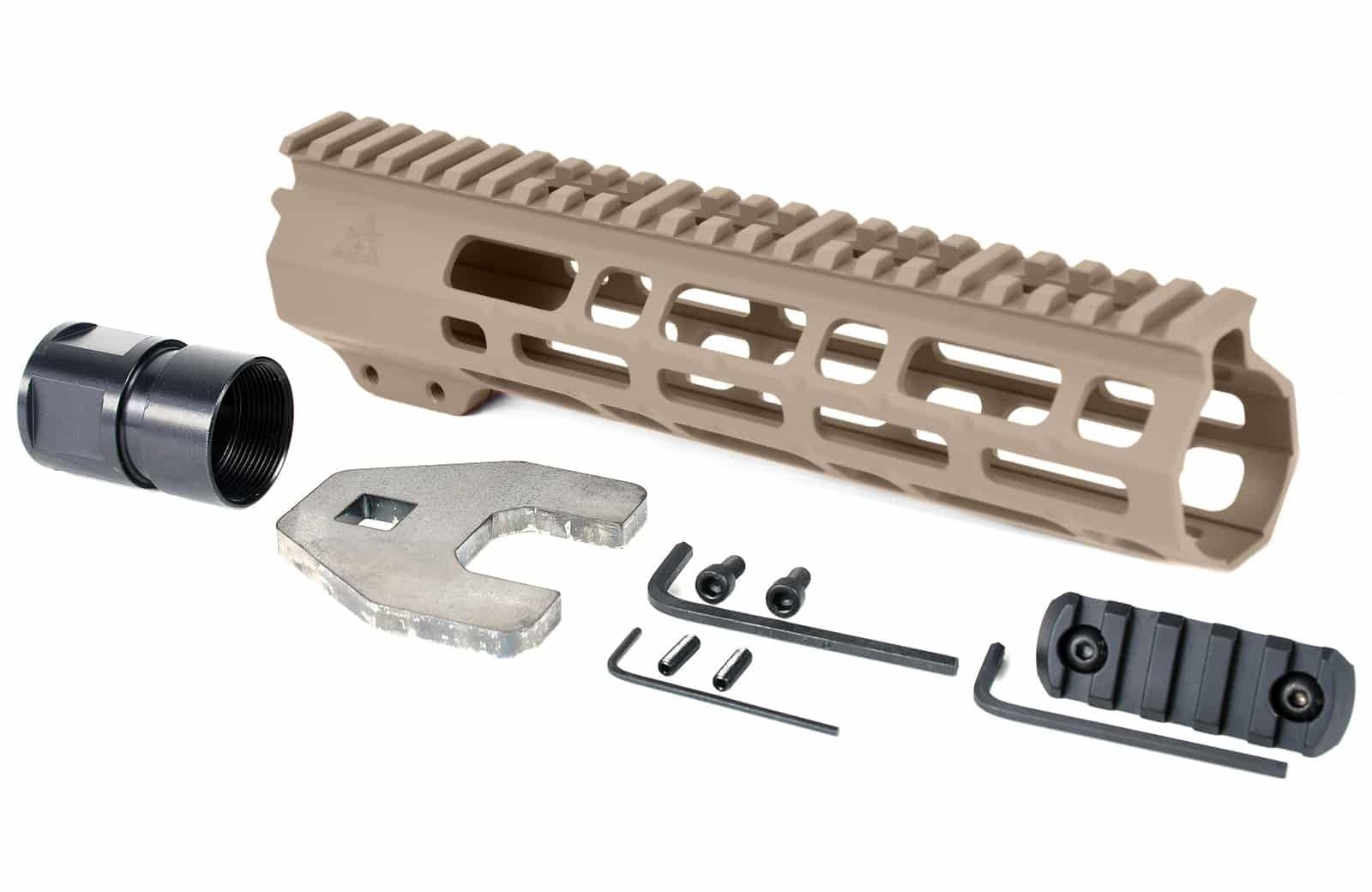
The AT3 Spear is a similar design and incorporates M-LOK slots into three sides so there are attachment points at the 3, 6, & 9 o’clock positions. The picatinny rail sections have had extra material removed to further lighten the build.
Remember–with any of these designs that cover the barrel’s gas port, you may need a low-profile gas block to accommodate the new handguard.
Handguards $100 – $140
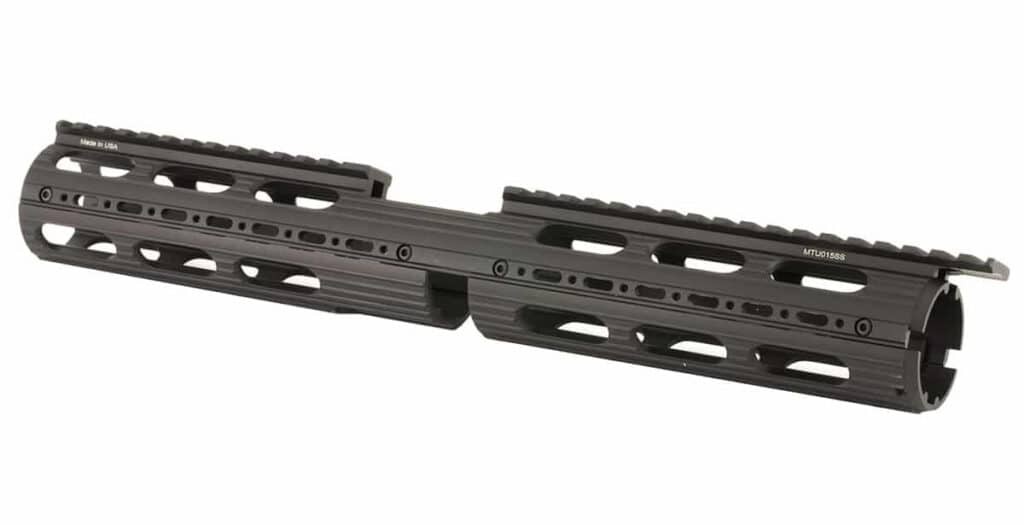
What if you want a longer forend, but don’t want to mess with changing out the gas block? There are options, like the UTG Pro 15″ AR-15 Drop-in Handguard – Extended Carbine Length Super Slim.
The narrow design of slim handguards can make them easier to hold. Instead of covering every surface with a rail, individual sections can be added exactly where they’re needed.
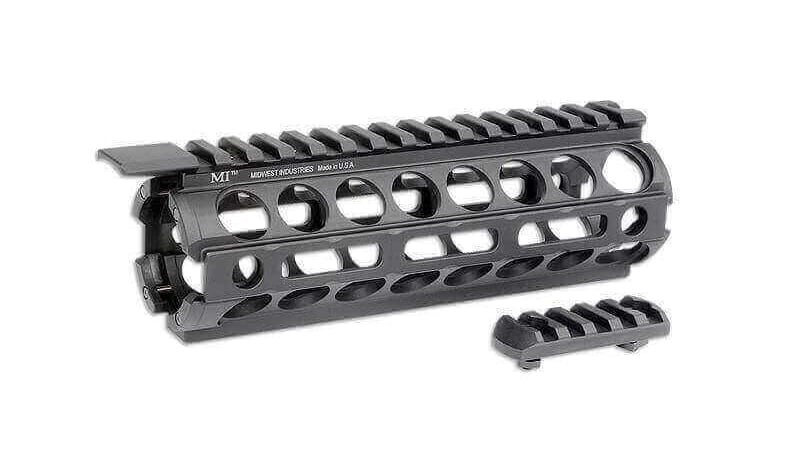
Midwest Industries is another company that specializes in aluminum. Their 7″ AR-15 M-Series M-LOK Two Piece Drop-In Handguard – Carbine Length is intricately engineered for weight reduction and strength. And it simply drops in on most carbines, making this another of the versatile upgrades that is easy to install.
This build also has M-LOK sections that can be added to the handguard on the 3, 6, and 9 positions.
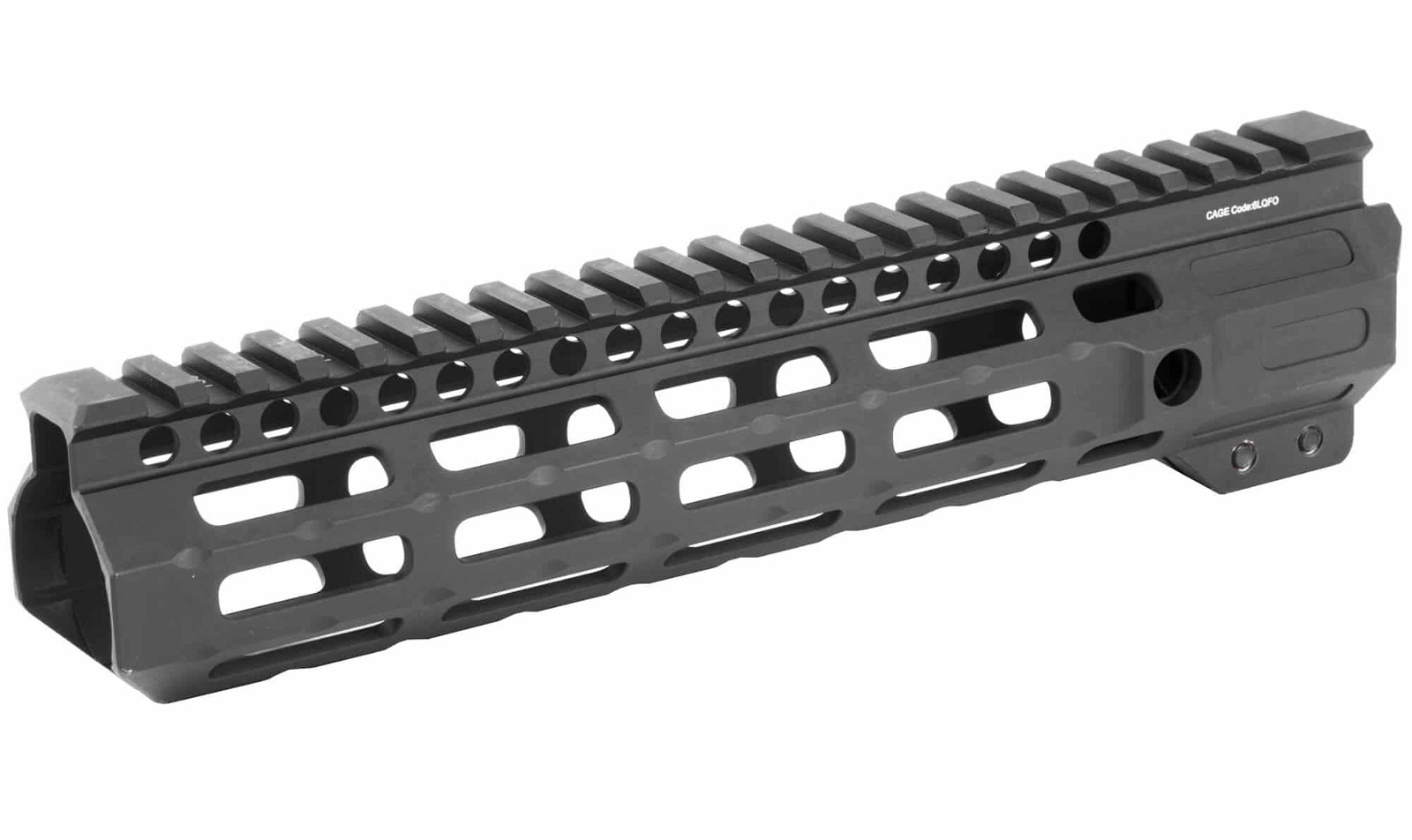
The Midwest Industries M-LOK Combat Rail Handguards are available in seven lengths. The shortest fits in this price spectrum, still. This is a good option for those who want to do a bit more of the DIY work and the handguard comes with a barrel wrench and a barrel nut.
Like other options we’ve discussed, this one has M-LOK slots for extra attachments, but it is free-floated, too. This means excellent rigidity.
Handguards $140 – $180
One thing to note–some of the handguards on this list may fit into multiple price categories depending on the length required. A longer handguard requires a longer billet, which produces more waste. While the waste is recycled, it usually isn’t recycled by the company that is milling the handguard. And milling is hard on tooling, too.
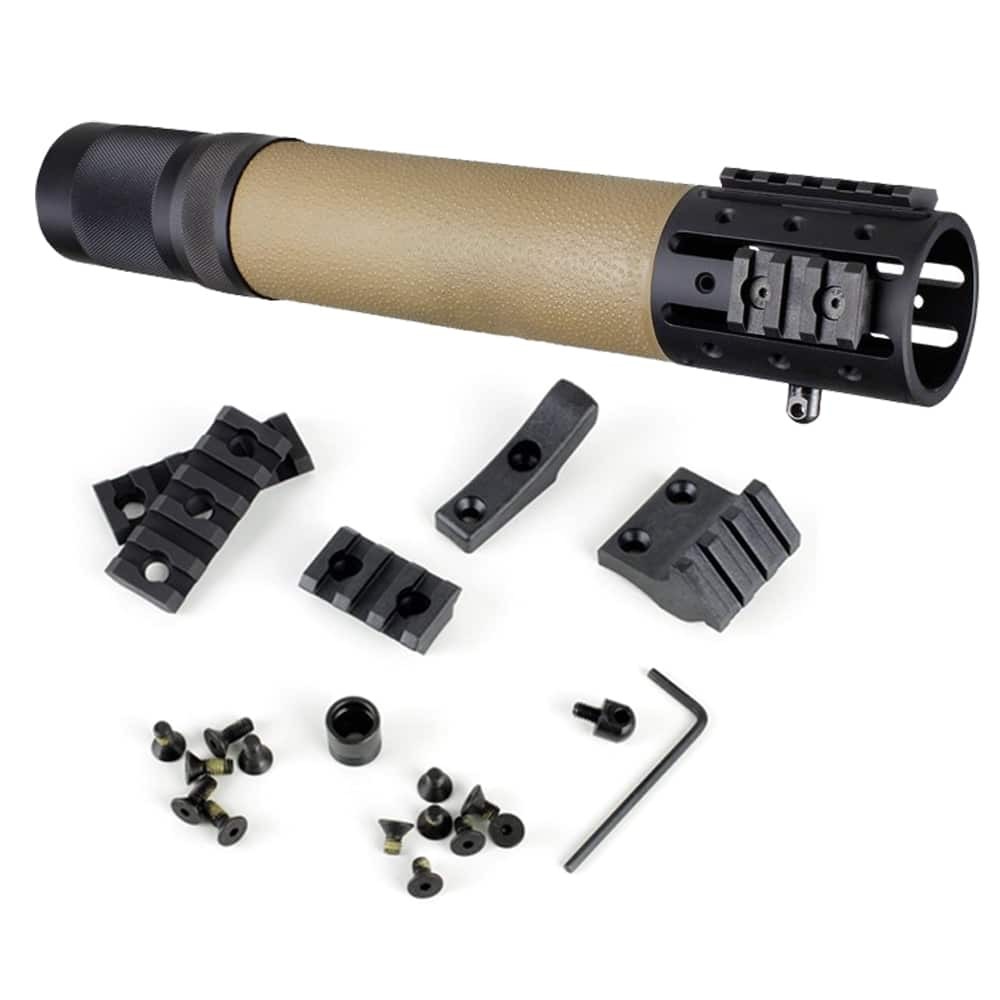
If you’re willing to pay a bit more, there are some stand-out options. The Hogue Rifle Length AR-15 Free Floating Overmolded Forend is one of these. Hogue’s forends tend to be tubular and have over-molded sections of rubber for extra grip. These have a very distinctive look to them.
These still allow for the addition of rail sections and come in black or FDE (though it is just the rubber that is tan).
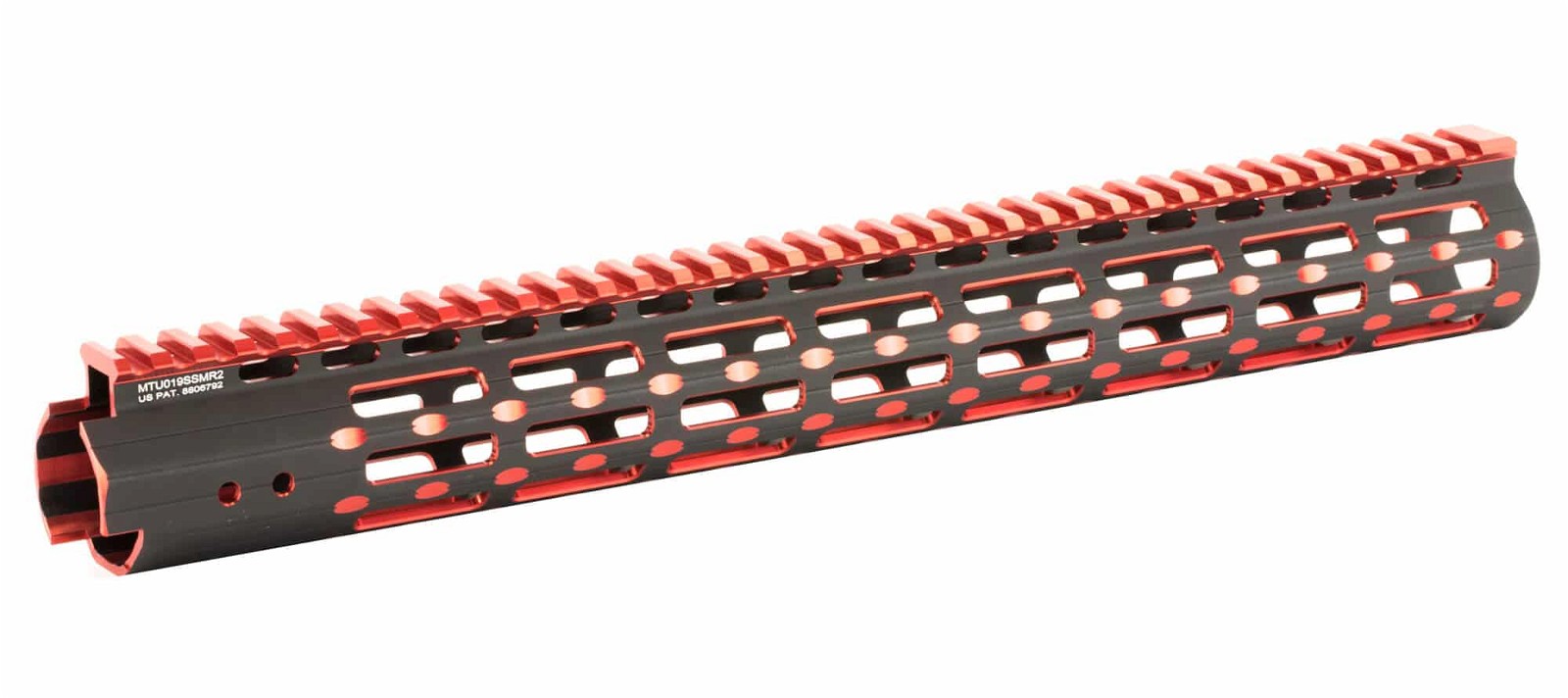
Another striking option is UTG’s two-tone line. If you’re looking for a rifle that matches a competition jersey, or one that is meant to be seen, the UTG Pro Super Slim 2 Tone Free Float M-LOK Rail may be the one. These have traditional anodized black surfaces with red or blue highlights.
The design itself is similar to many of the other M-Lok handguards, but the look is distinctive. The same strength and weight reduction characteristics are built-in, though, making these both functional and eye-catching.
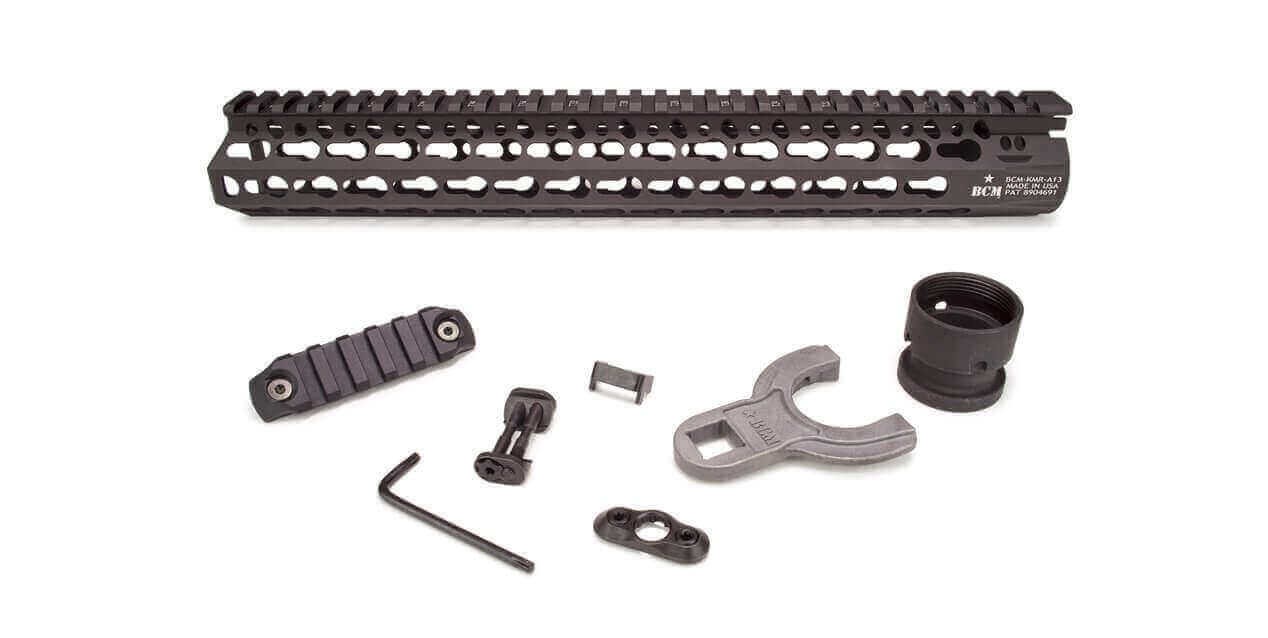
Another one that will bridge this price range and the next is the BCM KMR: Alpha Keymod Handguard. We’ve not talked much about Keymod in this article, but it is still a viable way to connect accessories to rails.
BCM’s KMR handguards are highly skeletal, which takes much of the weight out of the design. These are light, strong, and provide a great grip. They will require a new barrel nut, but all of the parts you need come with it.
Handguards > $180
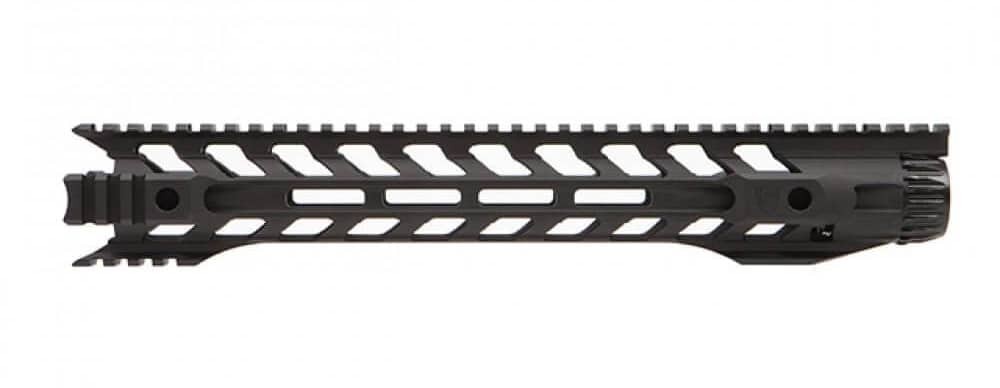
Fortis makes really nice parts. The Fortis Night Rail 556mm Free Float Rail System – M-LOK features much of the same functionality we’ve discussed in lower-priced options, but this rail has its own look. The middle of the handguard is trimmed back and free of Picatinny rail for an easy grip.
The rest of the rail, though, has both M-LOK and Picatinny options. And Fortis has designed a two-piece barrel nut that makes installation even easier.
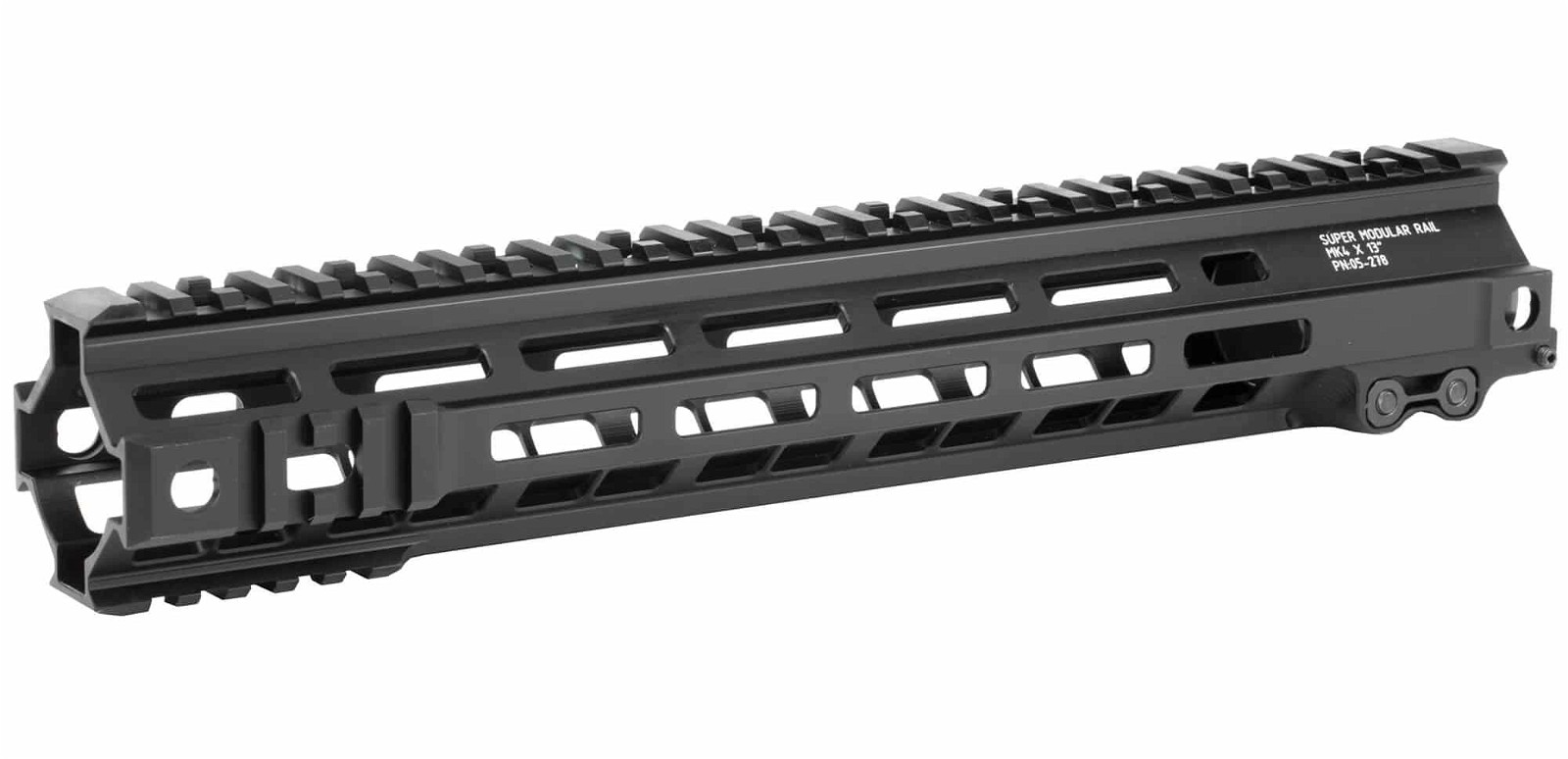
This M-LOK/Picatinny combo option covers most of the accessories out there. The Geissele Automatics MK4 Super Modular Rail – M-LOK Free Float Rail with Picatinny Rails makes use of both, and uses them structurally on the handguard to help with positioning the support hand in much the same way a hand stop might.
Geissele Automatics MK4 Super Modular Rail – M-LOK Free Float Handguard with Picatinny Rails for AR 15
That’s the real genius of the design. The length of these free-float rails would add weight, but the M-LOK allows for thin walls and a low profile. The swells provided by the Picatinny sections near the front are a tactile landmark for the support hand, even when moving fast.
This helps keep your hand away from the muzzle. This is a real concern with longer handguards on shorter barrels.
The Geissele is also available in an FDE Cerakote.
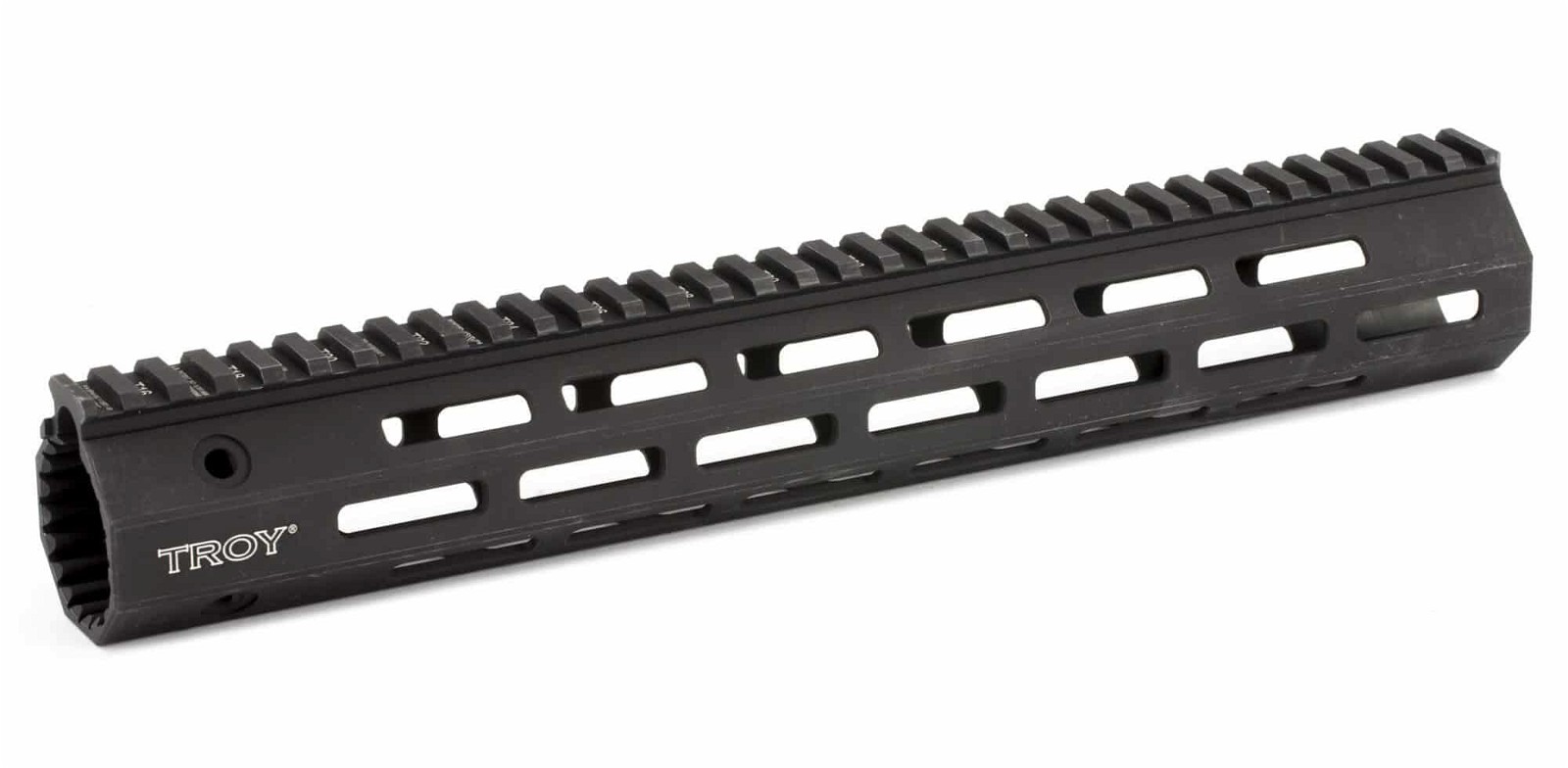
The last one on this list is from a company that’s been pioneering AR-15 designs for decades. Troy has been eclipsed by some other AR manufacturers, but their parts game is still solid. As is the Troy AR-15 Free Float Handguard – M-LOK Aluminum – AR-15 BattleRail.
One of the things that sets these handguards apart is their minimalist design. Troy keeps the surfaces clean and the lines straight and this appeals to many who would rather tailor their forends to meet their exacting needs. And the incredibly long length of Picatinny at the 12 o’clock position allows for forward-mounted optics, backup sights, or simple irons. And the rigidity of the design means those optics are going to hold zero.
No matter your price range, there’s an option for an upgrade. And almost anything is more functional than the plastic heat-shield style clam-shell designs featured on most carbines. Time for a little DIY?
One Last Tip
If there’s anyone that knows the AR-15 platform, it’s the US military. As a special offer for our readers, you can get the Official US Army Manual for AR-15/M4/M16 right now – for free. Click here to snag a copy.




